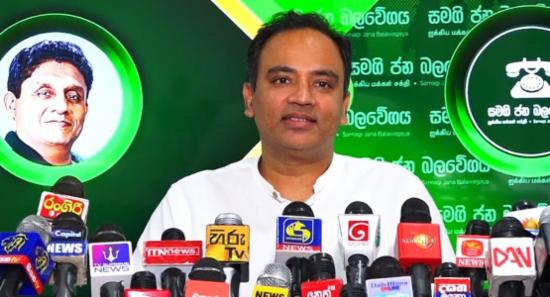.webp)
-734541.jpg)
SNAPSHOT: Sri Lanka's new 'Online Safety Bill'
COLOMBO (News 1st); The Sri Lankan Government is preparing to introduce new legislation that would suppress all online communication methods, including social media, via a commission appointed by the President. The proposed legislation was published via a gazette.
As per the Online Safety Bill, the commission appointed by the President will be able to proscribe or suspend any social media account or online publication, and also recommend jail time for said offenses.
The Online Safety Bill was published via gazette, by order of the Minister of Public Security.
What are these new laws?
There are several objectives in introducing this bill, as mentioned in the opening page of the document, and they are;
to establish the Online Safety Commission;
to make provisions to prohibit online communication of certain statements of fact in Sri Lanka;
to prevent the use of online accounts and inauthentic online accounts for prohibited purposes;
to make provisions to identify and declare online locations used for prohibited purposes in Sri Lanka;
to suppress the financing and other support of communication of false statements of fact and for matters connected therewith or incidental thereto.
What are false statements?
As per the Online Safety Bill, the definition of false statements is:
“false statement” means a statement that is known or believed by its maker to be incorrect or untrue and is made especially with intent to deceive or mislead but does not include a caution, an opinion or imputation made in good faith."
What are online accounts?
As per the Online Safety Bill, the definition of online account is:
“online account” means an account created with an internet intermediary for the use of an internet intermediary service."
What happens when the bill is enacted?
According to the Online Safety Bill, the commission appointed by the President will have the power to determine a statement made via an online account, as a false statement.
If the commission decides that a statement is false, it has the opportunity to prohibit the statement, prohibit the place where the online account is maintained, file a lawsuit and impose a prison sentence.
The following actions have been interpreted as offenses in the bill:
- Communication of false statements on the incidents within Sri Lanka
- False statements causing defamation
- Pave way for riots by provocation without reason
- Disturbing a religious assembly through false statements
- Communication of false statements with the sole intention of hurting religious sentiments
- Communication of false statements with the sole intention for the abomination of religious emotions
- Fraud
- Cheating by impersonation
- Defaming intentionally by a false statement with the objective of violating the peace
- Circulation of false statements with the intention of causing a riot or an offense against the Government
- Communication of statements on incidents to cause harassment.
- Child abuse
- Production of bots or modifying them for causing an offense
What is the commission that will be empowered to inquire into these offenses?
This commission will be titled 'Online Safety Commission'
The Commission shall consist of five members appointed by the President.
The President shall appoint one of the members of the Commission to be the Chairman of the Commission.
The President may, for reasons assigned, remove a member of the Commission from his office.
The Minister may make regulations in respect of all matters which are required by this Act.
What are the special powers vested in this commission?
The commission can decide that statements made through any online method, including social media, are considered false and prohibited .
The Commission has the power to order internet access service providers or intermediaries to prevent access to, remove, or disable such statements.
It has been proposed to give the commission the power to conduct investigations with the help of the police, to enter the premises and inspect them, to prosecute, to prohibit and to impose fines.
Other Articles
Featured News





.png )

-798357_550x300.jpg)



-798327_550x300.jpg)





-797273_550x300.jpg)


















.gif)